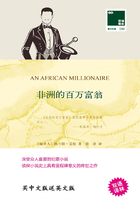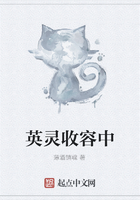An attitude is very powerful. It can build or destroy a relationship, home, a dream; a person' s life. As a young female, I had a very bad attitude. I would always walk around in bad moods. It was something inside of me making me so hostile. I decided to take it out on anybody who came in my way. Most people didn' t want to be bothered with me. The ones who did get involved wished they hadn' t. My attitude was known as the "virus." It was not contagious, but it was hurting my body and mind, as well as others. It was like a poison I had that needed to be cured.
The first time I met Ms. Clark, she was full of happiness and joy. I couldn' t understand why she was happy. Here was a lady who was blind, telling jokes, and laughing in her condition. It was just unbelievable. At that point in my life, I decided I needed a change of ways. If God allowed Ms. Clark to be positive, then I knew the world was not a bad place after all. Besides, I didn' t want to be lonely and miserable all my life. For that reason I turned over a new leaf. Every night I pray to God and ask Him to help me with my attitude, so that I can make a positive change in my life as well as others. I am thankful for what I have and am using the talents I have to help others—and I' m not focusing on what I don' t have. I realize now that a positive attitude can make a world of difference in my life and the lives I touch.
The only person in charge of my attitude is me. I have chosen to accentuate the positive and eliminate the negative. I have not yet reached the point where Ms. Clark is, but when I get older I want to be just like her. I discovered I always have choices and sometimes it' s only a choice of attitude. It' s up to me if I want to succeed in life or fail. In my journey of life, I am striving to be the best I can be, with my new positive attitude.
积极的态度看来似乎就是最重要的“人生法则”。积极的态度会帮我战胜很难克服的困难,它可以决定我在生活中是成功还是失败。我曾目睹过很多重大人士的不同态度,表现出积极的态度会对你的人生产生怎样的影响。它可以搬移高山,跨越流水,并能让我实现梦想。
黛布拉·克拉克是我们一家人的好朋友,我从她那里得到启发。克拉克女士是位社会工作者,在费城社会大学学习实验室里做助教,同时她也是所在教堂主日学校的老师。尽管事务繁忙,她仍然从紧张的工作中抽出时间来帮助那些老年人收拾屋子、购物,还为他们寻医求药。克拉克女士还为那些受到虐待的妇女照看孩子,给学生们读书读报。下雪的时候,你会看到克拉克女士在户外为左邻右舍铲雪。玛雅·安吉洛的诗《费诺尼玛女人》,讲述的一定就是克拉克女士。我或许应该讲明白,她的视力不好。克拉克女士对所有的事情都抱有积极的态度,她能克服视力缺陷看清整个世界,帮助别人实现目标。
那么,什么是态度呢?态度是一种行为方式,是一种感觉,或是展现一个人性格或观点的想法。积极的态度能让我达到目标,实现梦想。相反,消极的态度会让我一事无成,我无法达到或实现任何目标与梦想。
态度的力量是强大的,它可以建立关系、家庭和梦想,同时也能毁掉这一切,甚至是一个人的一生。作为一个年轻的女孩,我的态度很糟糕,我经常带着低落的情绪徘徊。我的心里总有一些东西使我对别人充满敌意,谁妨碍我,我就会冲谁发火。大家都不愿意招惹我,一不小心惹着了我的人也会后悔不已。众所周知,我的态度就像“病毒”,尽管不传染,但它伤害着我的身心,与此同时,也伤害了别人。我仿佛中了毒,需要治疗一样。
当我第一次见到克拉克女士的时候,她就显得欢欣鼓舞,我不能理解她为什么这么高兴。她的眼睛看不到,却能说着笑话,开心地大笑,简直难以置信!在那一刻,我决定要改变我的生活方式。如果上帝能给克拉克女士积极的生活态度,那么我知道这个世界还是美好的。除此以外,我不想再让我的生活充满孤独和痛苦,既然如此,我翻开了人生的新篇章。每天晚上,我都祈求上帝帮我改变态度,所以我对自己的生活作了一些积极的改变,与此同时,别人的生活也有了改观。我因为自己所作的一切而感到欣喜,而且我还利用自己的天分帮助了别人,我不再把注意力集中到自己所没有的东西上。现在,我意识到积极的态度会使我的人生发生翻天覆地的变化,并且会影响到别人的生活。
自己的态度只有自己来控制。我要强调积极的一面,去除消极的一面。我现在无法做到像克拉克女士那样,等我长大一些,我也要像她一样。我发现总要作出选择,有时只是选择一种态度。我是成功还是失败,完全由我自己做主。在人生的旅途上,我要选择全新的、积极的生活态度,尽我所能,奋力拼搏。
积极的态度会帮助你我战胜很多困难,它可以决定我们在生活中是成功还是失败。所以,选择正确的态度很重要。
shovel ['vl] v. 铲;挖;舀
Several people were shoveling the snow of the front door.
偶尔看见有人在自己家的门前铲雪。
accomplish ['kmpli] v. 完成;到达;实现
It lies on us to accomplish the task.
完成这项任务是我们的责任。
accentuate [鎘'sentjueit] v. 以重音念;强调;重读
But Bernanke is right to accentuate the positive.
但是,伯南克强调有信心是对的。
积极的态度看来似乎就是最重要的“人生法则”。积极的态度会帮我战胜很难克服的困难,它可以决定我在生活中是成功还是失败。
自己的态度只有自己来控制。我要强调积极的一面,去除消极的一面。
在人生的旅途上,我要选择全新的、积极的生活态度,尽我所能,奋力拼搏。
I decided to take it out on anybody who came in my way.
take out:扣除;去掉;取得;割掉
She was full of happiness and joy.
be full of:充满……的;充满着……;被……充满
用心练习,让自己“慢”下来
The Practice of Slowing Down
菲尔·鲍尔斯 / Phil Powers
I believe in the importance of pace. I grew up in a frenetic household, both parents working jobs that demanded their attention 24/7. I was little and fast and rushed around, and I still have that person inside me, always at risk of moving too quickly, missing the connection, making mistakes.
The forest behind our house offered a peaceful respite. My passion for the vertical world took me from tall trees in my backyard to climbing steep cliffs and crags. As a teen, I was moving easily over the landscapes of the American West and was drawn to higher summits. When I was 19, I learned something called the "rest step" from an old mountain climber named Paul Petzoldt. He advised me to rest in the middle of each step completely, but briefly. The rest step, which I still practice today, allows me to walk or climb with little effort. I can move very quickly yet still find a pause in every step.
The awareness of pace—that I owe to my teacher—has served me whether I am seeking the world' s highest summits, sharing my love for the mountains with others or kneeling to look my son, Gus, in the eye when he has a question.
It serves me as I drive, adjusting my speed to gain a bit of calm and reach my destination only minutes behind the "record time" a faster lane might provide. It serves me at home where we maintain a tradition of gathering each night at the dinner table to eat and talk to each other.
In times of crisis, pace comes to my aid. Another of Petzoldt' s lessons was when faced with an emergency, sit down, collect yourself, make a plan. When needs seem most urgent—even life-threatening—the practice of slowing down offers calm and clarity.













